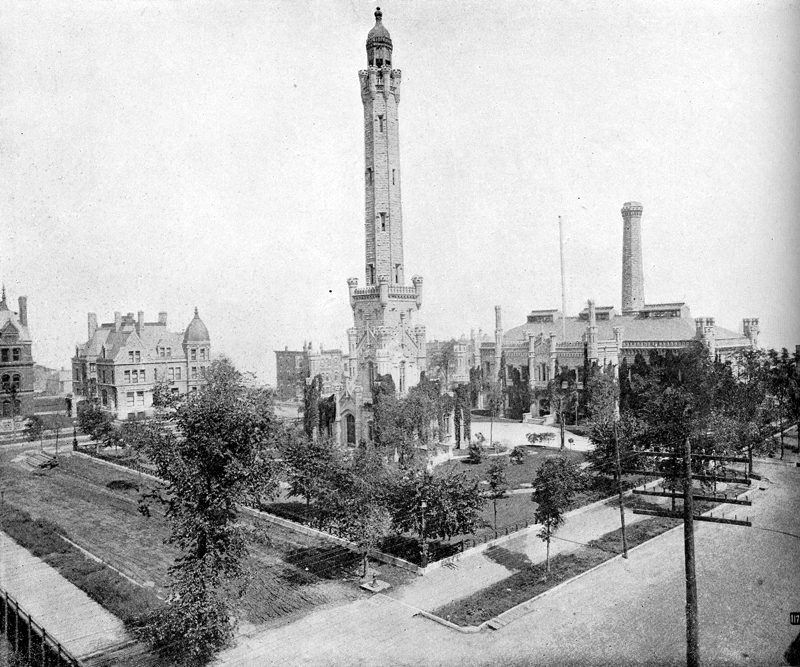Frontier
Mayor Joesph Medill was one of the first to advocate for new fire codes. In his inaguration speech, he states:
"No more important questions can engage your attention than those of the future fire limits and a reliable supply of water for the extinguishment of fires...[Chicago] contained 60,000 pine-built structures, and a few thousand of brick or stone...The solidly built parts of the city, and containing the most values, lay to the eastward of the combustible portions and were completely flanked and commanded by them. Each year the wooden parts of the city had filled up thicker and thicker with the most inflammable of all building materials, viz: pine. For miles square there was little but pine structures, pine sidewalks, pine planing mills, manufactures of pine and pine lumber yards."
"What lesson should this cruel visitation teach us? Shall we regard it as one of fortuitous occurrence which only happens at long intervals and is beyond human foresight or control? Such a conclusion constitutes our great future danger. A blind, unreasoning infatuation in favor of pine for outside walls, and pine covered with paper and tar for roofs, has possession of many of our people. It is thought to be cheaper than any other building material, when, in point of fact, it is the dearest stuff, all things considered, that can be used."
"[Pine] is short-lived; rots out in a few years; rapidly becomes shabby in appearance, and of all building substances is the most incendiary. There is no economy whatever in erecting tenements of pine. The difference in first cost between it and brick is not to exceed 15 or 20 per cent., and this saving at the outset is soon lost in higher rates of insurance, larger consumption of fuel, more doctors’ bills, incessant repairs, and greater discomfort. The value of real property is reduced, and its advance retarded by the presence of unsightly, decaying, and combustible wooden structures, and the owners are unable to procure loans on such property on terms satisfactory, either as to time, amount, or rates of interest."
"If we rebuild the city with this dangerous material, we have a moral certainty, at no distant day, of a recurrence of the late catastrophe. The chances of future destruction increase exactly in proportion to the multiplication of combustible structures on a given space."

Chicago Water Works,Chicagology.com, 1866
"If we rebuild the city with this dangerous material, we have a moral certainty, at no distant day, of a recurrence of the late catastrophe. The chances of future destruction increase exactly in proportion to the multiplication of combustible structures on a given space."
"Can there be any doubt as to our duty in view of these conditions and considerations? It seems to me it is obvious and imperative. Those who are entrusted with the management of public affairs should take such measures as shall render the recurrence of a like calamity morally impossible."
"The outside walls and the roof of every building, to be hereafter erected within the limits of Chicago, should be composed of materials as incombustible as brick, stone, iron, concrete or slate. Self-preservation is the first law of nature, so the self-preservation of the city is the highest duty of its rulers. Except for the most temporary uses, I am unalterably opposed, from this time forward, to the erection of a single wooden building within the limits of Chicago."
-Joseph Medill, Former Mayor of Chicago
When the the Chicago Fire of 1874 struck, the National Board of Underwriters issued a list of demands for the cities building codes and refused to implement any insurance policies until major changes were happening with the city's fire codes. Some of these demands included bans on the construction of wooden buildings within the city limits,reorganization of the fire department leadership style, and larger water mains throughout the city.